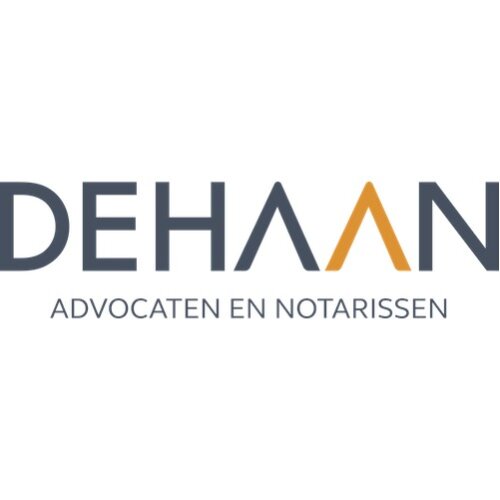Best Domestic Violence Lawyers in Netherlands
Share your needs with us, get contacted by law firms.
Free. Takes 2 min.
Free Guide to Hiring a Family Lawyer
Or refine your search by selecting a city:
List of the best lawyers in Netherlands
About Domestic Violence Law in Netherlands
Domestic violence in the Netherlands is considered a serious crime and encompasses various forms of abuse involving a partner, relative, or household member. The Dutch government strongly opposes domestic violence, emphasizing the importance of prevention and legal intervention. Laws are structured to protect victims through restraining orders, provide support services, and prosecute offenders. The approach integrates multidisciplinary cooperation between law enforcement, social services, and legal systems.
Why You May Need a Lawyer
Experiencing domestic violence can be traumatic, confusing, and challenging to navigate. Legal assistance can be crucial in several situations, such as:
- Seeking a protective order against an abuser.
- Pursuing criminal charges against the perpetrator.
- Needing representation in family court for divorce or child custody matters.
- Requiring guidance on legal rights and available protections.
- Assisting in navigating complex legal processes and paperwork.
Having a lawyer can provide clarity, protect rights, and ensure that victims and survivors receive appropriate support and justice.
Local Laws Overview
The Dutch legal framework provides robust measures to combat domestic violence:
- Restraining Orders: The law allows for obtaining short-term and extended restraining orders to ensure victim safety.
- Temporary Home Eviction: In urgent situations, an offender can be removed from the home for up to 10 days, allowing victims to find safety and receive support services.
- Child Protection Measures: The law prioritizes the welfare of children in domestic violence settings, including intervention and protective measures.
- Criminal Prosecution: Domestic violence may lead to criminal charges, carrying penalties such as imprisonment, fines, or mandatory rehabilitation programs for offenders.
The integration of police, social services, and the legal system exemplifies the focus on victim protection and offender accountability.
Frequently Asked Questions
What is considered domestic violence in the Netherlands?
Domestic violence includes physical, emotional, sexual, and financial abuse within a household or relationship, as well as controlling or coercive behavior.
How can I obtain a restraining order?
You can apply for a restraining order by contacting the police or consulting with a lawyer. Courts may issue orders based on threats or acts of violence.
What should I do if I’m in immediate danger?
If you are in immediate danger, call emergency services (112) for urgent assistance and protection from law enforcement.
Are there shelters available for domestic violence victims?
Yes, the Netherlands has shelters and safe houses available for victims seeking refuge from domestic violence. Social services or the police can assist with placement.
Can domestic violence affect child custody decisions?
Yes, evidence of domestic violence can significantly impact child custody arrangements, with the court prioritizing child safety and welfare.
What kind of evidence is needed to prove domestic violence?
Evidence may include medical records, witness statements, police reports, photographs, messages, or any documentation showing patterns of abuse.
Is mediation an option in domestic violence cases?
While mediation is generally available in family disputes, it is not recommended or safe in cases involving domestic violence due to power imbalances and safety concerns.
What legal aid options are available for victims?
Victims of domestic violence may qualify for legal aid, which provides a lawyer at reduced costs or for free, depending on financial circumstances.
Can a non-citizen access protection under Dutch law?
Yes, non-citizens are entitled to legal protections and support services against domestic violence, regardless of immigration status.
What happens if the abuser violates a restraining order?
Violation of a restraining order is a criminal offense and should be reported to the police, potentially resulting in the arrest and prosecution of the offender.
Additional Resources
Numerous resources and organizations offer support for domestic violence victims in the Netherlands:
- Veilig Thuis: A nationwide advice and reporting center for domestic violence and child abuse. They offer assistance through their hotline.
- Women’s Aid Organizations: Provide shelter, counseling, and legal assistance to women and children affected by domestic violence.
- Legal Aid Board (Raad voor Rechtsbijstand): Offers legal information and aid for those unable to afford a lawyer.
- Police: The Dutch police provide immediate protection and can facilitate contact with support services and legal avenues.
Next Steps
If you need legal assistance for domestic violence in the Netherlands:
- Assess Your Safety: Ensure you and any dependents are safe. Contact emergency services if necessary.
- Seek Support: Reach out to local support organizations or shelters for guidance and immediate assistance.
- Consult a Lawyer: Consider consulting a lawyer specializing in domestic violence to understand your rights and options.
- Gather Evidence: Document any incidents, injuries, or evidence of abuse, which can be crucial for legal proceedings.
- Explore Legal Aid: Check eligibility for legal aid to obtain affordable legal services.
Taking these steps can help ensure that you receive the protection and justice you deserve.
Lawzana helps you find the best lawyers and law firms in Netherlands through a curated and pre-screened list of qualified legal professionals. Our platform offers rankings and detailed profiles of attorneys and law firms, allowing you to compare based on practice areas, including Domestic Violence, experience, and client feedback.
Each profile includes a description of the firm's areas of practice, client reviews, team members and partners, year of establishment, spoken languages, office locations, contact information, social media presence, and any published articles or resources. Most firms on our platform speak English and are experienced in both local and international legal matters.
Get a quote from top-rated law firms in Netherlands — quickly, securely, and without unnecessary hassle.
Disclaimer:
The information provided on this page is for general informational purposes only and does not constitute legal advice. While we strive to ensure the accuracy and relevance of the content, legal information may change over time, and interpretations of the law can vary. You should always consult with a qualified legal professional for advice specific to your situation.
We disclaim all liability for actions taken or not taken based on the content of this page. If you believe any information is incorrect or outdated, please contact us, and we will review and update it where appropriate.
Browse domestic violence law firms by city in Netherlands
Refine your search by selecting a city.















